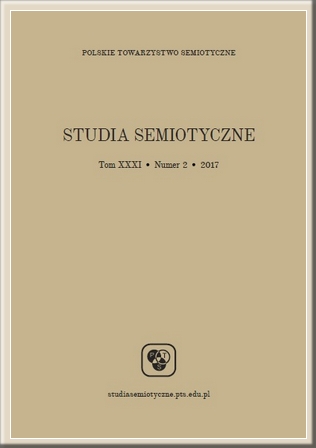Abstrakt
DOI: http://doi.org/10.26333/sts.xxxi2.08
In this paper we discuss how and whether moral adjectives fit a well-known semantics for gradable adjectives. We first test whether moral adjectives are relative or absolute adjectives. The preliminary results suggest that moral adjectives don’t fall neatly under either category. In the second part we tackle the question of the scale of moral adjectives in a more theoretical fashion, i.e. by investigating their possible scales with mathematically precise tools.
Bibliografia
Barker, C. (2002). The Dynamics of Vagueness. Linguistics and Philosophy, 25(1), 1–36.
Bierwisch, M. (1989). The Semantics of Gradation. In M. Bierwisch and E. Lang (Eds.), Dimensional Adjectives (pp. 71–261). Berlin: Springer-Verlag
Chang, R. (1997). Introduction. In R. Chang (Ed.), Incommensurability, Incomparability and Practical Reason. Cambridge, MA: Harvard University Press.
Cresswell, M. (1976). The Semantics of Degree. In B. Partee (Ed.), Montague Grammar (pp. 261–292). New York: Academic Press.
Darwall, S., Gibbard, A., Railton, P. (1992). Toward Fin de Siècle Ethics: Some Trends. The Philosophical Review, 101(1), 115–189.
Fara, D. G. (2003). Gap Principles, Penumbral Consequence, and Infinitely Higher-Order Vagueness. In J. C. Beall (Ed.), New Essays on the Semantics of Paradox. Oxford University Press.
Kennedy, C. (2007). Vagueness and Grammar: The Semantics of Relative and Absolute Gradable Adjectives. Linguistics and Philosophy, 30(1), 1–45.
Klein, E. (1980). A Semantics for Positive and Comparative Adjectives. Linguistics and Philosophy, 4(1), 1–45.
Kölbel, M. (2003). Faultless Disagreement. Proceedings of the Aristotelian Society, 104(1), 53-73.
Krantz, D. et al. (1971). Foundations of Measurement, Vol. 1. New York: Academic Press.
Kratzer, A. (2012). Modals and Conditionals: New and revised perspectives. Oxford: Oxford University Press.
Lasersohn, P. (2005). Context Dependence, Disagreement, and Predicates of Personal Taste. Linguistics and Philosophy, 28(6), 643–686.
Lassiter, D. (2016). Graded Modality. Qualitative and Quantitative Perspectives. Oxford University Press.
Lassiter, D., Goodman, N. D. (2013). Context, Scale Structure, and Statistics in the Interpretation of Positive-Form Adjectives. In Todd Snider (ed.), Semantics & Linguistic Theory (SALT) 23 (pp. 587–610). Ithaca: CLC Publications.
Lassiter, D., and Goodman, N. D. (2015). Adjectival Vagueness in a Bayesian Model of Tnterpretation. Synthese, 1–36.
Liao, S.-Y., Meskin, A. (2015). Aesthetic Adjectives: Experimental Semantics and Context-Sensitivity. Philosophy and Phenomenological Research, 94(2), 371–398.
Liao, S.-Y., McNally, L., Meskin, A. (2016). Aesthetic Adjectives Lack Uniform Behavior. Inquiry, 59(6), 618–631.
Luce, R. D., Narens, L. (1987). Measurement Scales on the Continuum. Science, 236: 1527–1532.
MacFarlane, J. (2014). Assessment Sensitivity: Relative Truth and Its Applications. Oxford: Oxford University Press.
Meier, C., van Wijnbergen-Huitink, J. (Eds.) (2016). Subjective Meaning: Alternatives to Relativism. Berlin: De Gruyter.
Sassoon, G. W. (2016). Multidimensionality in the Grammar of Gradability, MS.
Stephenson, T. (2007). Judge Dependence, Epistemic Modals, and Predicates of Personal Taste. Linguistics and Philosophy, 30(4), 487–525.
Stojanovic, I. (2007). Talking About Taste: Disagreement, Implicit Arguments, and Relative Truth. Linguistics and Philosophy, 30(6), 691–706.
Stojanovic, I. (2016). Expressing Aesthetic Judgments in Context. Inquiry, 1–23.
Temkin, L. (2012). Re-thinking the Good. Oxford: Oxford University Press.
Umbach, C. (2016). Evaluative Propositions and Subjective Judgments. In C. Meier and J. van Wijnbergen-Huitink (Eds.), Subjective Meaning: Alternatives toRelativism (pp. 127–168). Berlin: De Gruyter.

